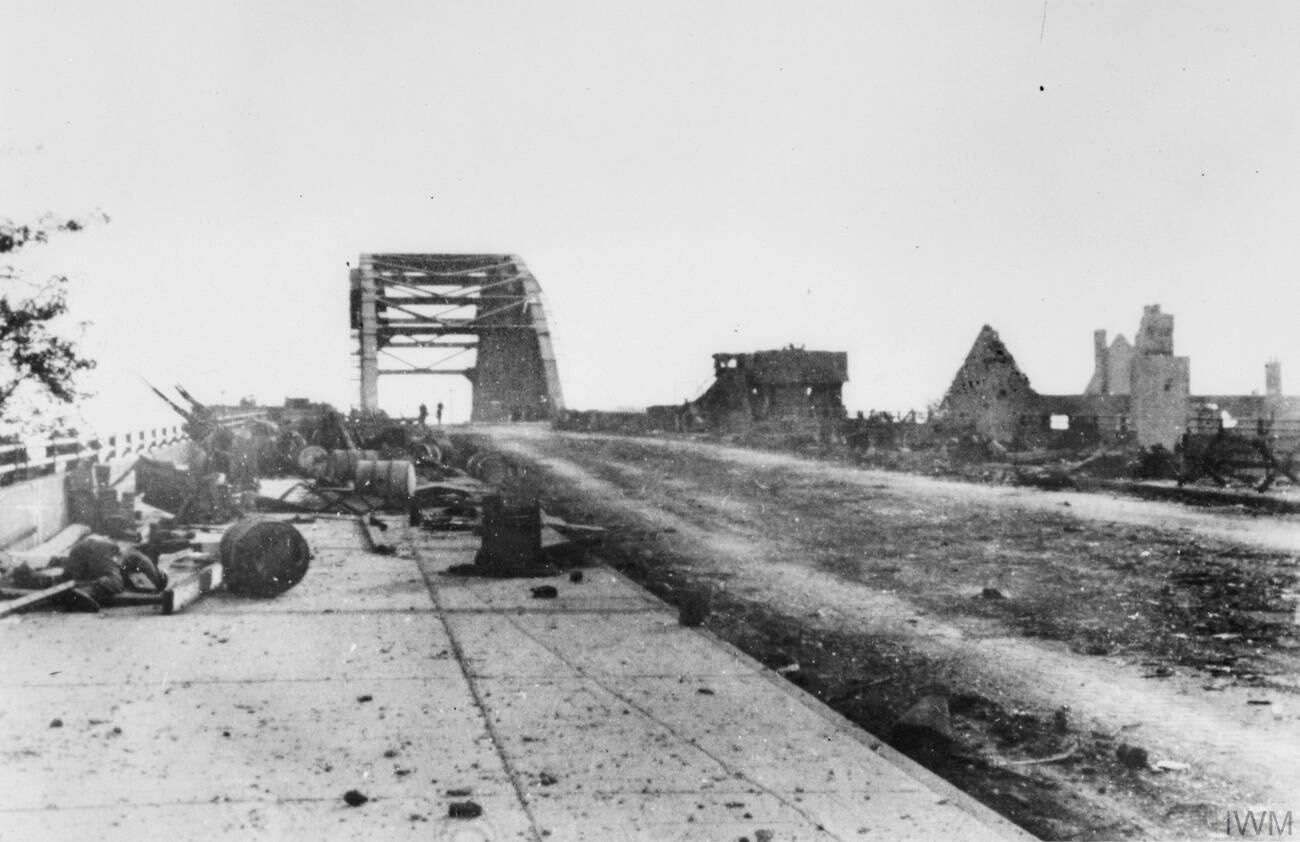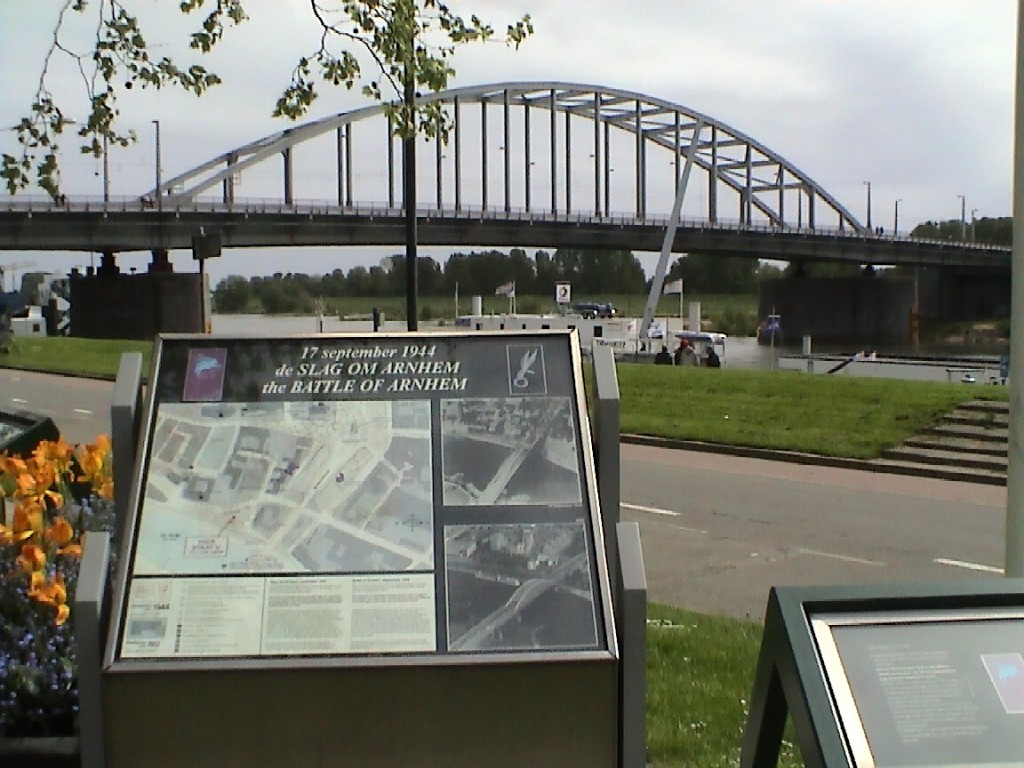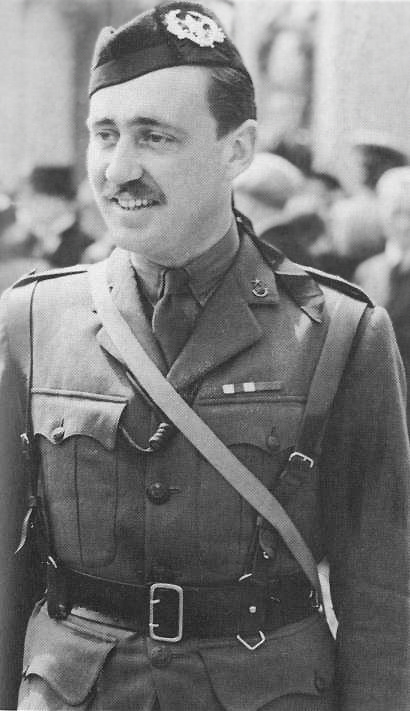1. Overview
Major General John Dutton Frost (31 December 1912 - 21 May 1993) was a distinguished airborne officer of the British Army, renowned for his pivotal role in the Second World War. He is most recognized for leading a small contingent of British airborne troops who successfully reached and defended the Arnhem bridge during the Battle of Arnhem, a critical engagement within Operation Market Garden. Frost was among the first to join the newly formed Parachute Regiment and served with distinction in numerous wartime airborne operations, including those in North Africa, Sicily, and Italy, until he was injured and subsequently captured at Arnhem. After the war, he continued his military service, holding various command roles before retiring from the army in 1968 to pursue a career as a beef cattle farmer in West Sussex.
2. Early Life and Military Career
John Dutton Frost's early life and initial military service laid the foundation for his distinguished career, marked by a commitment to the British Army from a young age.
2.1. Early Life and Education
John Dutton Frost was born on 31 December 1912, in Poona, British India. His father, Frank Dutton Frost, was a Brigadier General in the British Indian Army, and his mother was Elsie Dora (née Bright). Frost received his early education at Wellington College, Berkshire. However, due to a lack of academic progress, he was transferred to Monkton Combe School, Somerset, in 1929. Despite this transfer, Frost later chose to omit Monkton Combe School from his entry in Who's Who.
2.2. Initial Military Service
Following in his father's footsteps, Frost joined the British Army upon leaving school. He graduated from the Royal Military College, Sandhurst on 1 September 1932, receiving his commission as a second lieutenant in the Cameronians (Scottish Rifles). He was promoted to lieutenant on 1 September 1935. Frost served with the 2nd Battalion of his regiment, initially in the United Kingdom. The battalion, under the command of Lieutenant-Colonel Douglas Graham, was later deployed to Palestine during the early stages of the Arab revolt. From 1938 to 1941, Frost was seconded to the Iraq Levies, an Arab force under British control in Iraq. During this period, he was promoted to captain on 1 September 1940. He was fluent in Arabic, a skill that proved valuable in his service with the Iraq Levies, and his request to return to the Cameronians was initially denied due to the British military's need for his expertise in Iraq.
3. Second World War
John Dutton Frost played a significant role in various military operations during the Second World War, distinguishing himself in airborne assaults across multiple theaters.
3.1. Volunteering for the Parachute Regiment
Returning to the United Kingdom in September 1941, Frost initially served with the 10th Battalion, Cameronians, a Territorial Army (TA) unit that was part of the 45th Brigade of Major-General Philip Christison's 15th (Scottish) Infantry Division. Later that same year, he volunteered to join the newly formed Parachute Regiment. He was subsequently posted to the 2nd Parachute Battalion, which was part of Brigadier Richard Gale's 1st Parachute Brigade, itself a component of the 1st Airborne Division, commanded by Major-General Frederick Browning.
3.2. Operation Biting
Frost gained early recognition for his leadership in Operation Biting, a daring raid conducted on 27 February 1942. The objective was to dismantle and steal components of a German Würzburg radar station located at Bruneval, near Le Havre in France. This radar system was crucial for German forces, enabling them to detect British aircraft and ship movements approaching the French coast, which had led to many British planes being shot down. The radar station was heavily fortified, particularly against sea-based attacks, making a commando assault impractical.
Lord Louis Mountbatten, then Chief of Combined Operations, proposed an airborne assault. Due to concerns about potentially losing an entire battalion, the attacking force was reduced to a single company. Major Frost, despite not having completed his full parachute training at the time, was chosen to lead "C" Company of the 2nd Parachute Battalion. The plan involved parachuting in, securing the radar components, and then withdrawing by Royal Navy MGBs, with support from commando units. Intelligence indicated that the defenses at the radar station had been reinforced with three concrete bunkers, but the operation proceeded as planned.
The parachute drop was executed smoothly, and the assault group quickly assembled. The attack was swift and successful, with Frost and 12 of his men breaking through German positions at Le Presbytère. The team successfully stole the radar components and captured a German radar technician. The operation resulted in three British soldiers killed, six wounded, and six taken as prisoners of war. Prime Minister Winston Churchill lauded the raid, which significantly boosted the morale of the fledgling paratrooper units and guaranteed their continued involvement in wartime operations. For his distinguished leadership during Operation Biting, Frost was awarded the Military Cross.
3.3. North Africa Campaign
During the Allied landings in North Africa, British airborne units, including the 1st Parachute Brigade (now detached from the main division and commanded by Brigadier Edwin Flavell), landed in Tunisia. At this time, Frost, serving as an acting Lieutenant-Colonel and commanding his battalion, was tasked with attacking enemy airfields near Depienne, approximately 30 mile south of Tunis. The airfields were found to be abandoned, and the armored column they were supposed to rendezvous with at Oudna never arrived, leaving Frost's battalion 50 mile behind enemy lines. Heavily outnumbered and subjected to continuous attacks during their retreat, the battalion fought its way back to Allied lines. This arduous journey resulted in significant losses for the battalion, including 16 officers and 250 men. Despite these casualties, the battalion continued to fight alongside the British First Army through to Tunis. For his leadership during these actions, Frost was awarded his first Distinguished Service Order (DSO) on 11 February 1943. During the North Africa campaign, Frost's unit conducted two combat jumps behind enemy lines, effectively disrupting German forces before returning to Allied territory.
3.4. Sicily and Italy Campaigns
In 1943, Frost's battalion, along with the rest of the 1st Parachute Brigade (now under Brigadier Gerald Lathbury), participated in Operation Husky, the Allied invasion of Sicily. Their objective was to capture the Ponte di Primosole road bridge. The brigade was widely scattered during the drop, and the 295 officers and men who managed to reach the bridge found themselves facing the German 4th Parachute Regiment. Despite their efforts, they lost control of the bridge until the arrival of other Eighth Army units.
Frost's final action in this theater occurred in Italy, where the entire 1st Airborne Division, initially commanded by Major-General Ernest Down (and later by Major-General Roy Urquhart after Major-General George F. Hopkinson was killed in September 1943), landed by sea at Taranto.
3.5. Operation Market Garden and the Battle of Arnhem


John Dutton Frost is most widely recognized for his command during the Battle of Arnhem, a key component of Operation Market Garden. The operation's plan dictated that Frost's 2nd Parachute Battalion would spearhead the 1st Airborne Division's assault on the bridge at Arnhem, holding it for an anticipated two days until Lieutenant-General Brian Horrocks's XXX Corps could reach them. The overall strategy envisioned approximately 9,000 airborne troops holding the bridge.
On 17 September 1944, as commander of the 2nd Parachute Battalion, Frost led a mixed group of about 745 lightly armed men. They landed near Oosterbeek and advanced into Arnhem. The battalion successfully reached the bridge and secured its northern end. However, the hurried planning of Operation Market Garden had failed to anticipate the presence of two tank divisions of the II.SS-Panzerkorps in the vicinity of Arnhem. Consequently, Frost's force found itself surrounded and cut off from the rest of the 1st Airborne Division.
Frost commanded his troops during the ensuing fierce, four-day battle. The Germans subjected the paratroopers' positions to relentless artillery fire and launched repeated attacks with tanks and infantry, resulting in some of the most intense fighting witnessed by either side, with little quarter given. The German forces were reportedly surprised by the paratroopers' unwavering refusal to surrender and their continuous counterattacks. After a brief truce on the third day, during which 250 wounded soldiers were evacuated, the battle resumed. Frost himself sustained an injury to his leg from a mortar explosion. The fighting continued until the remaining paratroopers, numbering around one hundred, ran out of ammunition, forcing their eventual surrender.
4. Prisoner of War
Following his capture at the Battle of Arnhem, John Frost was held as a prisoner of war (POW) at Oflag IX-A/H in Spangenberg castle. He was later transferred to a hospital in Obermassfeldt. Frost remained a prisoner until March 1945, when the area was overrun and he was liberated by advancing American troops. For his exceptional leadership during the Battle of Arnhem, Frost was awarded a bar to his Distinguished Service Order on 20 September 1945.
5. Post-War Career
John Dutton Frost continued his distinguished military service after World War II, holding various command and staff positions before transitioning to civilian life.
5.1. Post-War Military Service
After the war, Frost remained in the army. He commanded the 1st Airborne Division's Battle School and returned with the division, still under Major-General Urquhart, from Norway to the United Kingdom, where it was subsequently disbanded. He later returned to the 2nd Parachute Battalion, which, though still part of the 1st Parachute Brigade, had been transferred to the 6th Airborne Division. Frost led his former battalion during the Palestine Emergency, as part of the 6th Airborne Division in Palestine. While serving in Palestine, he met Jean McGregor Lyle, who was working there as a welfare officer; they married on 31 December 1947.
Returning to England in late 1946, Frost attended the Staff College, Camberley. Upon graduation, he served as a General Staff Officer Grade 2 (GSO2) with the 52nd (Lowland) Infantry Division, a TA formation. He then served as a GSO1 with the 17th Gurkha Division during the Malayan Emergency. After returning to the United Kingdom, he commanded the Support Weapons Wing of the School of Infantry from 1955 to 1957. Subsequently, he commanded the 44th Parachute Brigade, another TA formation composed of part-time soldiers. On 11 October 1961, he was promoted to temporary Major General, and returned to the 52nd Division, this time as its General Officer Commanding (GOC), a post he held for nearly three years. Earlier in his post-war career, after his liberation as a prisoner of war, Frost also served as a commanding officer in Malta and later in Libya, and subsequently took command of a reserve parachute brigade.
5.2. Retirement and Civilian Life
By the time of his retirement from the army in 1968, Frost had achieved the permanent rank of Major General. In addition to his wartime decorations, he was appointed a Companion of the Order of the Bath in the 1964 New Year Honours. In 1982, Frost was appointed a deputy lieutenant in the County of West Sussex, where he had settled into beef cattle farming after his retirement. His life was also featured on the British television programme This Is Your Life on 6 April 1977.
6. Personal Life
John Dutton Frost married Jean McGregor Lyle on 31 December 1947. They had met in Palestine, where Jean was working as a welfare officer during Frost's military service there. Together, they had two children, a son and a daughter.
7. Honours and Awards
John Dutton Frost received several significant military decorations and honours throughout his distinguished career, recognizing his bravery and leadership:
- Companion of the Bath (CB)
- Distinguished Service Order (DSO) with a bar (indicating a second award)
- Military Cross (MC)
- Grand Officer of the Sovereign Military Order of Malta
8. Writings
John Dutton Frost authored several published works, including autobiographical accounts of his wartime experiences and a book on the Falklands War:
- 1980: A Drop Too Many - his first autobiography
- 1983: 2 PARA Falklands: The Battalion at War
- 1991: Nearly There - his second autobiography
9. Depictions and Memorials
John Dutton Frost's life and particularly his actions during the Battle of Arnhem have been extensively portrayed in popular media and commemorated through significant tributes.
9.1. Depictions in Media
In 1945, the British Army Film and Photographic Unit (AFPU) and the J. Arthur Rank Organisation began production on Theirs is the Glory, a documentary feature film about the Battle of Arnhem, directed by Brian Desmond Hurst. The film included fictionalized recreations of battle events, with John Frost among 120 Arnhem veterans who played themselves in many scenes, lending authenticity to the portrayal.
In 1974, Frost's role at Arnhem was prominently featured in Cornelius Ryan's best-selling non-fiction book A Bridge Too Far. Two years later, in 1976, Frost served as a military consultant for Richard Attenborough's film adaptation of Ryan's book. In the film, Frost was portrayed by acclaimed actor Anthony Hopkins.
9.2. Memorials and Tributes
A significant tribute to John Frost's legacy is the bridge over the Rhine at Arnhem itself. In 1978, the bridge was officially renamed John Frostbrug (meaning "John Frost Bridge") in his honour, despite Frost's reported reluctance to accept such a prominent memorial.
10. Death
John Dutton Frost died on 21 May 1993, at the age of 80. He was laid to rest at Milland Cemetery, located in West Sussex.
11. Legacy and Assessment
John Dutton Frost is remembered as an exemplary airborne officer whose leadership and tenacity, particularly during the Battle of Arnhem, cemented his place in military history. His steadfast defense of the Arnhem bridge against overwhelming odds, despite the ultimate failure of Operation Market Garden, became a symbol of courage and resilience. Frost's ability to maintain discipline and inspire his troops under extreme pressure, even when surrounded and outmatched, underscored his exceptional command qualities. His post-war career continued to demonstrate his dedication to the British Army, serving in various challenging theaters. Beyond his military achievements, his transition to civilian life as a farmer and his role as a Deputy Lieutenant reflected a life of continued service and contribution. The renaming of the Arnhem bridge in his honour stands as a lasting testament to his enduring legacy and the indelible mark he left on the history of airborne warfare.
